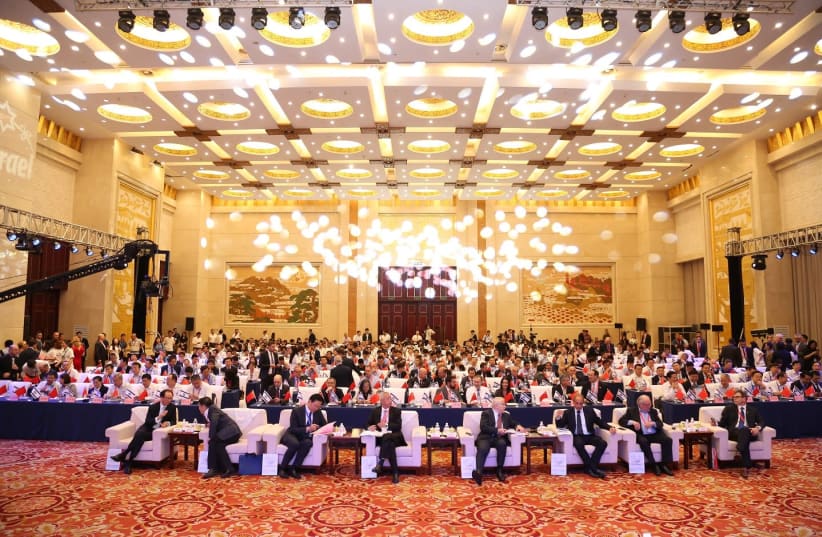While trade war hostilities between the United States and China continue to drag on and even intensify, Israeli entrepreneurs are seemingly undeterred from seeking opportunities in the sleeping giant, which is quickly waking up to the potential of Israeli innovation.
Eager for investment, more than 100 Israeli hi-tech companies and start-ups traveled this week to Jinan, the capital of China’s Shandong Province, to participate in the 22nd international GoforIsrael investment conference.
Approximately 1,400 investors attended the conference, a joint venture by Cukierman & Co. Investment House and Catalyst Funds, along with Shandong Province’s investment arm Shandong Guohui Investment Co. and Jinan Pioneer Area.
During the summit, held in China for the third time, organizers said Israeli entrepreneurs took advantage of 800 one-on-one meetings with potential backers.
Spanning almost 160,000 sq.km. and home to 100 million people, Shandong Province boasts GDP of $1.1 trillion, the third largest economy in China.
Potential areas of interest, Vice-Governor of Shandong Province Ling Wen told the conference, include next-generation IT, advanced manufacturing, renewable energy and advanced agricultural technology.
“This year, we held more than 800 personalized one-on-one meetings between Chinese investors and Israeli companies,” said Edouard Cukierman, chairman of Tel Aviv-based Cukierman & Co. Investment House and managing partner of Catalyst Investments.
“I received a considerable amount of feedback during the conference from start-ups who have already arranged follow-up meetings, and we hope that the GoforIsrael conference will only be the beginning of strengthening the bond between Israeli hi-tech and Shandong Province.”
China is Israel’s second largest trade partner worldwide today, with bilateral trade exceeding $10b. in 2017. The visit of Chinese Vice President Wang Qishan to Israel in October 2018 symbolized the growing importance Beijing places on increasing innovation cooperation with the Jewish state.
“China is not similar to Europe or the United States at all,” said Motti Kushnir, CEO and founder of InfinityAR, purchased by Chinese e-commerce giant Alibaba in March.
“It’s not something you do on the side, you need a completely different focus and strategy. If you cannot give it the right resources, do not go into it. Do not act here alone, but work with locals who are familiar with the market and take care of your Israeli staff here with a regular presence,” Kushnir said.
“In China, everything moves fast. We’re building a prototype for glasses. What takes a good few months in the US takes a month or two in China. They are not afraid to make mistakes, and they go through three to five stages between the prototype and the final product.”
